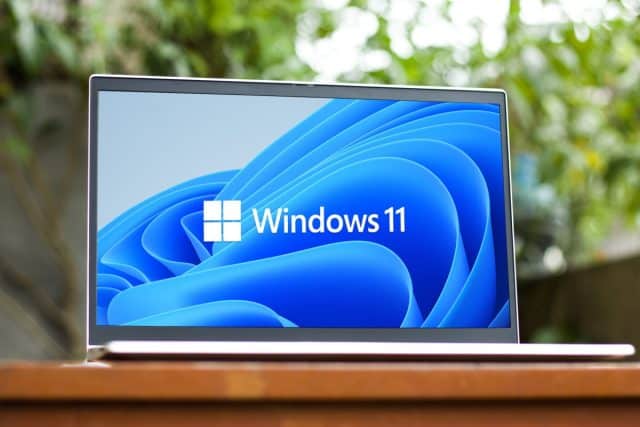Microsoft uses KB5022360 update to squash bugs and reduce the number of reboots when upgrading to Windows 11 22H2

Microsoft has released a new update for Windows 11 in the form of KB5022360.
The release is only for Windows Insiders participating in the Release Preview Channel running Windows 11 22H2. Although it may be a little while before it is made available more widely, it sees Microsoft not only fixing a number of issues -- including one relating to searchindexer.exe and another to conhost.exe -- but also introducing changes that reduce the number of reboots experienced by users upgrading to Windows 11 22H2.
See also:
- Oversight Board recommends Meta change its policies to respect transgender and non-binary people
- Twitter confirms that it is deliberately blocking numerous third-party clients
- Microsoft announces general availability of Azure OpenAI Service and promises ChatGPT soon
Writing about the KB5022360 update, Microsoft's head of the Windows Insider Program Team, Brandon LeBlanc, says: "This month we are making a change in Release Preview to reduce the number of reboots that customer experience when upgrading".
He expands on this, saying:
Starting this month, when customers upgrade to Windows 11, version 22H2, they will get the January optional quality update (KB5022360) and the .NET update alongside the Feature Update. This means when you upgrade to Windows 11, version 22H2 you will get the feature update with the latest and greatest security fixes for both Windows and .NET -- all with only a single reboot!
The full list of changes reads as follows:
- New! We changed the experience for preview .NET Framework updates. After you installed this update, all future preview (optional) .NET Framework updates will be displayed on the Settings > Windows Update > Advanced options > Optional updates page. On that page, you could control which optional updates you wanted to install.
- We fixed an issue that affected searchindexer.exe. It randomly stopped you from signing in or signing out.
- We fixed an issue that stopped you from searching for a file based on the file's contents.
- We fixed a resource conflict issue between two or more threads (known as a deadlock). This deadlock affected COM+ applications.
- We fixed an issue that affected conhost.exe. It stopped responding.
- We fixed an issue that might have affected the Domain Name System (DNS) suffix search list. When you configured it, the parent domain might have been missing.
- We fixed an issue that might have occurred when the Input Method Editor (IME) was active. Applications might have stopped responding when you used the mouse and keyboard at the same time.
- We fixed an issue that might have affected FindWindow() or FindWindowEx(). They might have returned the wrong window handle.
- We fixed an issue that might have occurred when you converted or reconverted Japanese Kanji using a multibyte character set (MBCS) app. The cursor might have moved to the wrong location when you typed.
- We fixed an issue that might have affected applications that used Microsoft Edge WebView2 to display content. Applications that used WebView2 included Microsoft Office and the Widgets app. The content might have appeared blank or greyed out.
- We fixed an issue that affected certain systems that had firmware Trusted Platform Modules. (TPM). This issue stopped you from using AutoPilot to set up those systems.
- We fixed an issue that affected picture files you found using search on the taskbar. This issue stopped you from opening those pictures.
- We fixed an issue that affected mstsc.exe. It stopped responding while connecting to a RemoteApp and Desktop Connection.
- We fixed an issue that affected a Group Policy for Expanded Toasts.
- We fixed an issue that caused Windows Server 2022 domain controllers (DC) to stop responding. This occurred when they processed Lightweight Directory Access Protocol (LDAP) requests.
- We fixed an issue that affected the Resilient File System (ReFS) MSba tag. The issue caused a nonpaged pool leak.
- We fixed an issue that affected the ReFS. The issue caused high nonpaged pool usage, which depleted system memory.
- We fixed an issue that affected devices that were subject to Microsoft Exploit Protection Export Address Filtering (EAF). Some applications stopped responding or did not open. These included Microsoft Office and Adobe Reader.
- We fixed an issue that affected some game controllers. When the game controller was connected to the computer, the computer might not have gone to Sleep mode.
Image credit: Wirestock / depositphotos
